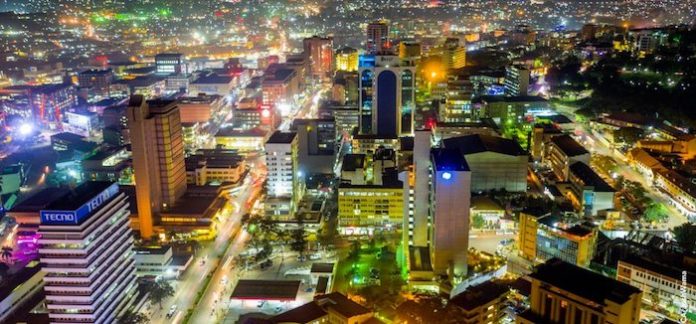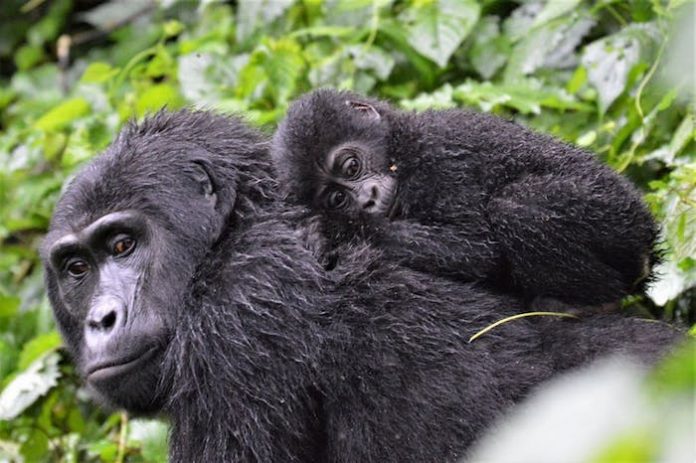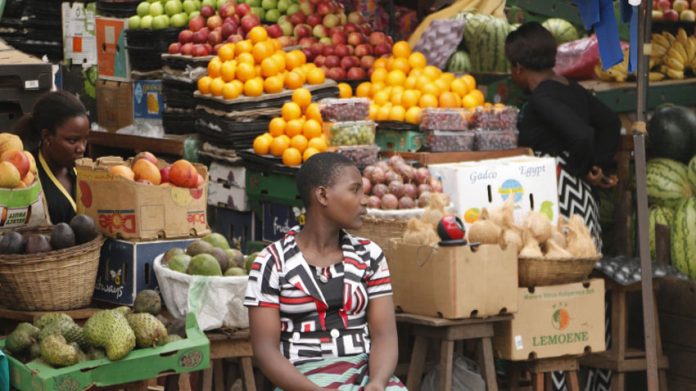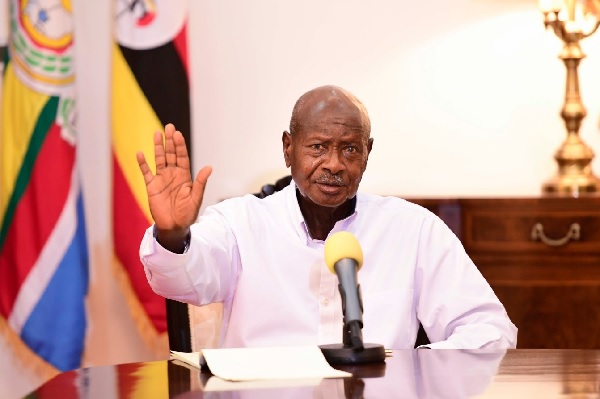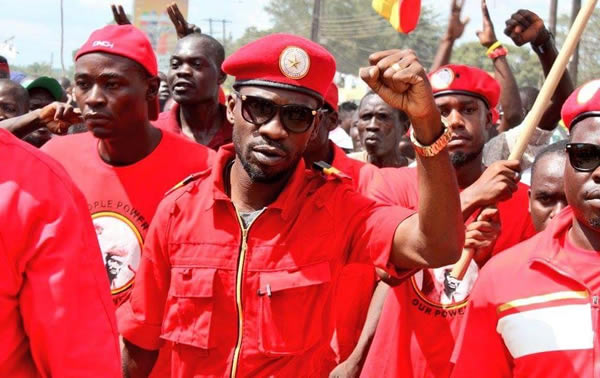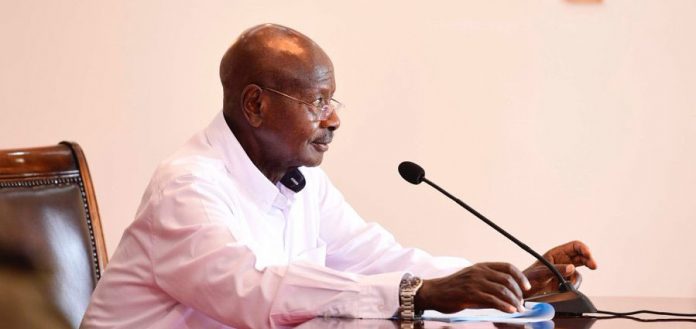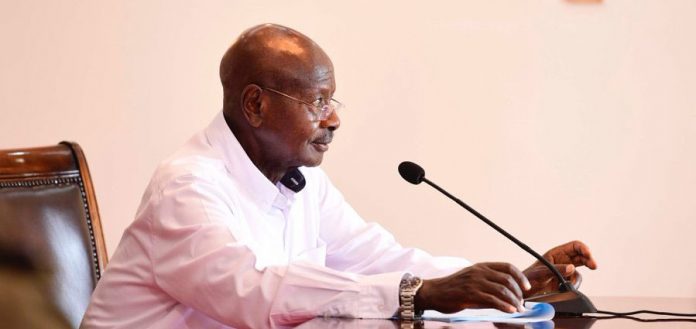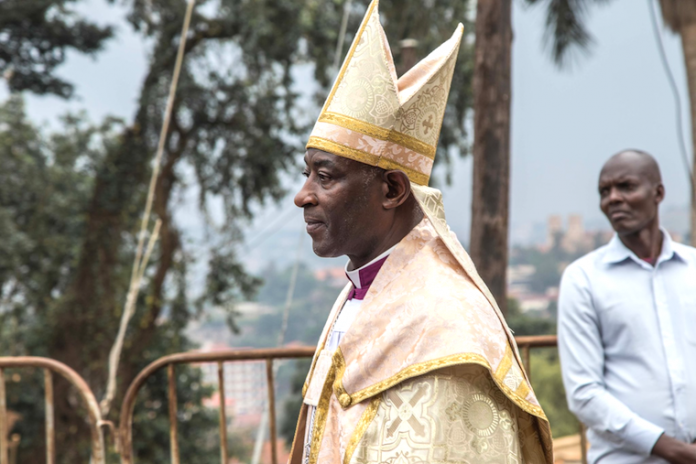As coronavirus rapidly spreads the world, the Ministry of Health has issued an update on Uganda’s enhanced measures to prevent importation of this world pandemic as recently declared by the World Health Organization (WHO).
According to the Ministry of Health, Uganda has no confirmed cases of COVID-19 as of 11th March 2020. However, the ministry adds that although no cases have been confirmed so far, a total of 1,632 travelers including Ugandans travelling back home have been identified as high-risk and identified for purposes of follow up.
Here is the full statement released and signed by the Minister for Health, Hon. Jane Ruth Aceng on the update of Uganda’s measures to prevent the importation of Coronavirus.
“The Ministry of health would like to update the general public on the progress of the country’s enhanced measures to prevent the importation of Coronavirus Disease (COVID-19) into the country;
This outbreak has now spread to all continents and 109 countries, territories and areas are currently affected. As of 10th March 2020, WHO reported that 61 countries have local transmission of COVID-19 while 6 countries are under investigation.
Current Global Situation
As of 10th March 2020, globally, 113,702 confirmed cases have been reported with over 4,000 deaths. In Africa, 11 countries have reported cases of COVID-19. These are Egypt, Algeria, Nigeria, Tunisia, Morocco, Senegal, South Africa, Cameroon, Togo, Burkina Faso and Democratic Republic of Congo (DRC).
Uganda’s current situation
Uganda has no confirmed case of COVID-19 as of 11th March 2020. However, to date a total of 1,632 travelers including Ugandans and traveling back home have been identified as high-risk and identified for purposes of follow up. Of these, 1,071 are Chinese, 244 are Ugandans, 43 are Italians, 34 from South Korea and 484 are other nationals.
A total of 986 travelers are under self-quarantine, of which 606 have completed the mandatory 14 days of self-quarantine. So far, samples from 26 persons who presented with signs and symptoms similar to that of COVID-19 have been tested. All tested negative.
The Government of Uganda has reviewed the evolution of the COVID-19 outbreak in the affected countries, categorized them and recommends several measures for the different categories. Based on the current trend of the COVID-19 outbreak, the Ministry of Health has revised the categories of countries upon assessing the risk of importation from affected countries.
Criteria used for categorization
Three criteria were used to rank the countries; the criteria were weighed based on their importance in assessing the risk of importation from affected countries.
1 Number of total (cumulative) cases: The higher the number of cumulative cases, the higher the chances
2 Number of cases in the last 24 hours. This is a measure of active transmission of COVID-19 in the countries.
3 Exponential increase in cases in the last 7 days – This is an indication of community transmission of COVID-19. This was measured indirectly by the percentage increase in the number of cases I the last 7 days.
The countries that had cumulative number of cases of more than 100 and/or had more than 10 new cases of COVID-19 in the last 24 hours (total of 19) were ranked using the above criteria and scoring.
Category 1:
People residing in the following 16 countries (Italy, San Marino, Iran, South Korea, France, China, Germany, Spain, Belgium, USA, United Kingdom, Netherlands, Sweden, Norway, Austria and Malaysia) should consider postponing non-essential travel to Uganda. Any traveler from these countries including Uganda nationals will be subjected to se-quarantine for 14 days on arrival to Uganda even if they don’t exhibit signs and symptoms of COVID-19. Additionally, individuals highlighted in category 1 who insist on visiting Uganda will be subjected to self-quarantine or institutional (health facility) quarantine at their own cost.
Six countries previously in category 2; UK, Switzerland, Norway, Netherlands, Sweden, and United States of America have moved to category one because of the increase in the number of new cases per day and cumulative number of cases.
Whereas China has largely controlled the COVID-19 outbreak, and they recorded 20 new cases as of 10th March 2020, the cumulative number of cases remain high and they have not recorded zero cases for 14 days.
Category 2:
For the following countries (Finland, Philippines, Indonesia and Pakistan), the Ministry of Health will observe the travelers very closely and the evolution of the outbreak in these countries and advise on any restrictions in the coming weeks. India previously in category 2 has dropped to category 3.
Category 3:
The rest of the countries will undergo the routine screening upon arrival and and be advised accordingly on the measures to undertake while in country to prevent infection and where to report in not feeling well.
This analysis will be reviewed weekly and the travel advisory updated every Wednesday beginning 11th March, 2020.
Any of the above countries that successfully contains the outbreak will be removed from this list after 14 days with no new cases.
The Ministry of Health working with Civil Aviation Authority (CAA) is considering spraying all travelers who arrive into the country as they disembark from the aircraft with a disinfectant spray.
The Ministry of Health has also developed guidelines for self-quarantine which should be adhered to by all travelers from the high-risk countries who come into the country and opt for self-quarantine.
SELF-QUARANTINE
The Ministry of Health has defined self-quarantine as the transparent self-restriction of persons’ activities when they are not ill with COVID-19 for the purposes of protecting unexposed members of the communities from contracting the disease should at any rist traveler become sick.
This is particularly important for persons who may have been in contact with a person who has symptoms of COVID-19 or is suffering from the disease or has traveled from one of the areas with high transmission of COVID-19.
This means one will stay at his/her home, hotel room or any identified accommodation without mixing with family members or the general public for the period of 14 days.
All individuals who are under self-quarantine are advised to observe the following prevention and control measures:
Stay in well-ventilated room away from other people such as family members preferably with separate hygiene and toilet facilities. If you share the same hygiene and toilet facilities, ensure you disinfect it after use using regular household disinfectant or soap and water
If you are working, stay at home for the entire duration of the quarantine (14 days).
Ensure that you have adequate food, water, hygiene provisions and appropriate medical treatment for existing medical conditions while in self-quarantine.
Ensure that you have the necessary communication facilities e.g. mobile telephone to communicate with family members and other people while in quarantine.
Always wash your hands with soap and water regularly or use an alcohol-based hand rub.
Cover your nose and mouth with a handkerchief or tissue when coughing and sneezing. Throw away used tissue immediately into a dustbin or bun it and wash your hands immediately with soap and water or an alcohol-based hand rub. The handkerchief must be washed and ironed by you daily
Stay away from pets, as there is a chance that humans can pass the disease to them.
Avoid sharing toothbrushes, utensils, dishes, drinks, towels, clothes or bed linen with anybody in your home.
Clean and disinfect frequently touched surfaces such as doorknobs/handles, bedside, tables, bedframes, and other bedroom furniture daily with regular household disinfectant or soap.
Clean and disinfect bathroom and toilet surfaces at least once a day with regular household disinfectant of soap.
If you develop symptoms of acute respiratory infection, including fever, cough, sore throat and difficulty in breathing, please call for immediate help on the telephone numbers below.
I would like to re-assure the public that Government continues to strengthen its interventions in preventing the importation of COVID-19. In the same vein, we continue to appeal to the general public to practice the following preventive measures at all times:
1 Avoid hand-shaking and hugging at all times
2 Avoid close contact with people who are visibly sick with flu-like symptoms (fever, cough, sneeze).
3 When sick with flu-like symptoms avoid going to public places, offices and public gatherings. Remain at home to avoid infecting others.
4 You don’t need to wear medical masks if you don’t have respiratory symptoms such as cough, sneezing or running nose.
5 Don’t take self-medication such as antibiotics.
6 Do NOT spit in public. Find a secluded place toilets or pit latrines in which to spit
7 Delay travel to countries that have that currently have many patients with COVID-19. If you MUST travel, please follow the protective measures.
8 Avoid travel if you flu-like symptoms.
The Ministry of Health would like to encourage the general public to always verify information from the Ministry to avoid spreading false rumors which may cause unnecessary anxiety.
The public is also advised to report any suspected cases to the nearest health facility or call our toll-free lines on 0800-203-033 and 0800-100-066 or the following officers – Mr. Atek Kagirita 0782 909 153, Dr. Allan Muruta 0772 460 297. Thank you.”



